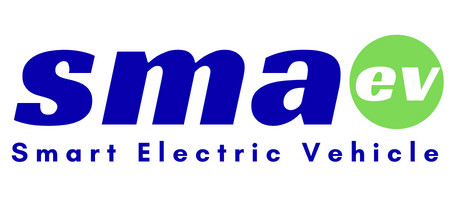- Volkswagen is making rapid progress worldwide with electrification of its vehicle fleet despite strained supply situation
- Order bank remains high: 135,000 (+65% vs. 2021) ordered vehicles being produced at fast pace
- Electric roadmap is being accelerated: Production of ICE models in Europe to end by 2033. Ten new electric models to take to the road by 2026
Volkswagen is on track with the electrification of its vehicle fleet. One year earlier than planned the company has reached a further milestone in the implementation of its ACCELERATE strategy to become an emission-free, software-driven mobility provider: Since the first ID.302 models were handed over to customers in September 2020, Volkswagen has delivered 500,000 vehicles from the ID. family worldwide – despite the persistently strained supply situation.
Electric mobility campaign is a success story for Volkswagen
Delivery of half a million ID.s confirms that the Volkswagen models are being well-received by our customers – all over the world. We are on the right track with our electric mobility campaign and our success story continues,” Imelda Labbé, Board Member for Sales, Marketing and After Sales at Volkswagen, said. “Our focus is unchanged – we want to make Volkswagen the most desirable brand for sustainable mobility.” The order bank at Volkswagen remains high: “We are doing our utmost to deliver the roughly 135,000 ID.s on order to our customers as quickly as possible. However, due to the persistently strained situation as regards the supply of parts we are repeatedly having to adjust production,” Labbé commented.
Volkswagen will only produce electric vehicles in Europe from 2033. By 2030, all-electric vehicles are already to account for at least 70 percent of Volkswagen’s unit sales in Europe. In the USA and China, the company is targeting an electric vehicle share of more than 50 percent for the same period. “Norway is the forerunner in electric mobility. The ID.403 topped the registration statistics there in October. This example shows that the ID. family product portfolio matches the needs of our customers,” Labbé stated.
Volkswagen is to launch ten new electric models by 2026. “Volkswagen will have the broadest portfolio of electric vehicles in the automotive industry: From the entry-level e-car with a target price of under €25,000 to the new flagship Aero B we will have the right offer in every segment,” Labbé said.
Customer feedback transformed direct into new vehicle functions
The ID. family is also a trailblazer in terms of software integration and digital customer experience: Volkswagen constantly provides ID. owners with “over the air” updates. This ensures that the car is always up to date across the entire life cycle, and that it is constantly being improved by new functions. “Our experience with this in recent months has been very positive,” Labbé reports: “The benefit is that we can transform customer feedback directly and swiftly into new functions, such as increased charging capacity or a battery capacity notification, in the driver display.”
MEB is the backbone of the electric mobility campaign
The modular electric drive matrix (MEB) is a decisive factor in the accelerated boost to the global electric mobility campaign under the brand’s ACCELERATE strategy. Designed especially for Volkswagen’s electric drive system, this vehicle architecture offers long ranges, plenty of interior space and the possibility for over-the-air software updates. The MEB serves as the technical basis for all the fully-electric and fully-networked vehicles in the ID. family.
With its consistent focus on all-electric drives and its ability to be used in vehicles from a range of segments throughout the entire Volkswagen Group, the MEB generates huge economies of scale, reduces the costs of electric mobility and expedites the transition towards carbon-neutral mobility. Thanks to its “design for manufacturing”, the MEB is also specifically tailored for fast and efficient production. This enables the generation of extensive economies of scale, which make electric vehicles less expensive and thus more affordable for a great number of people.
Source: Volkswagen





